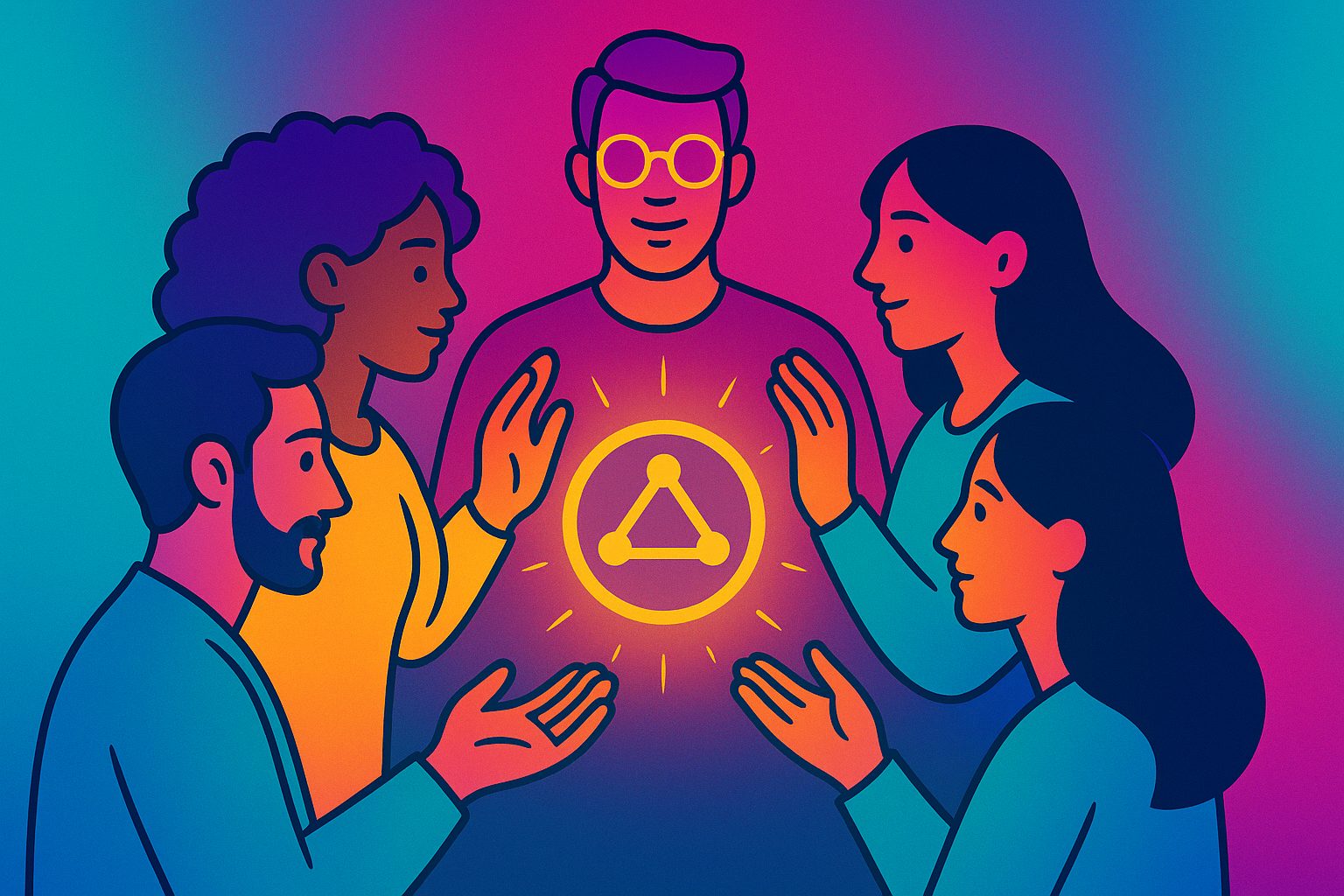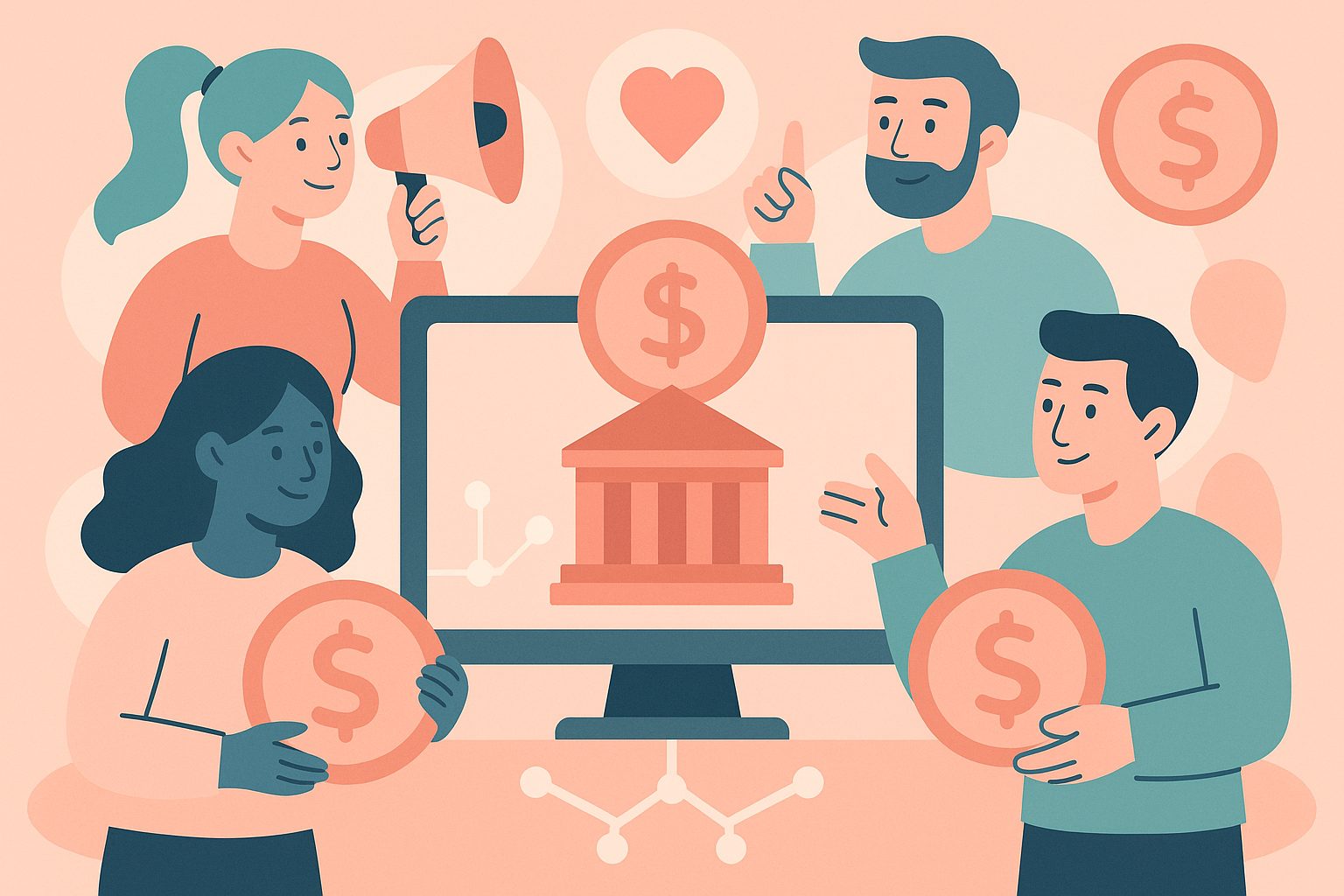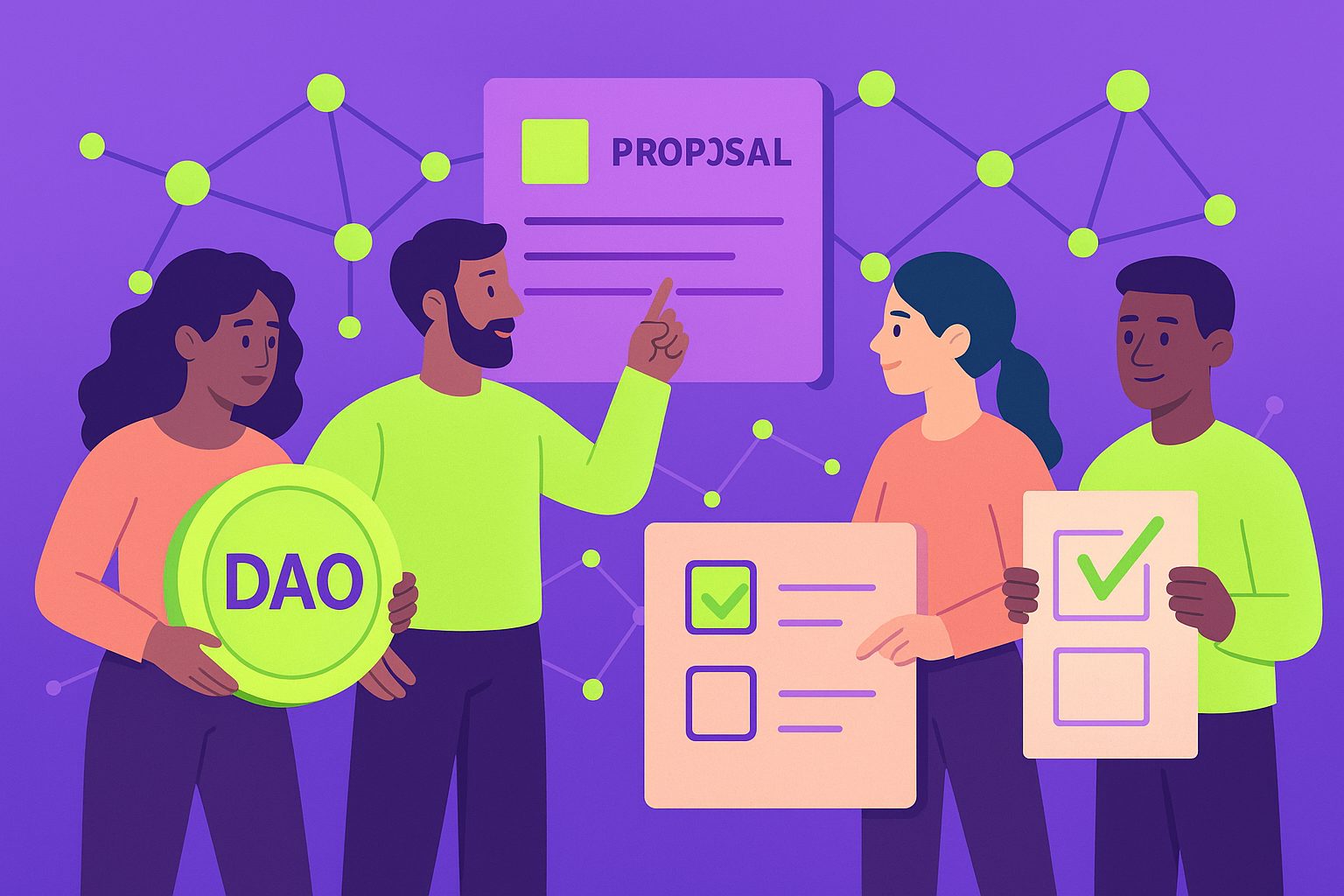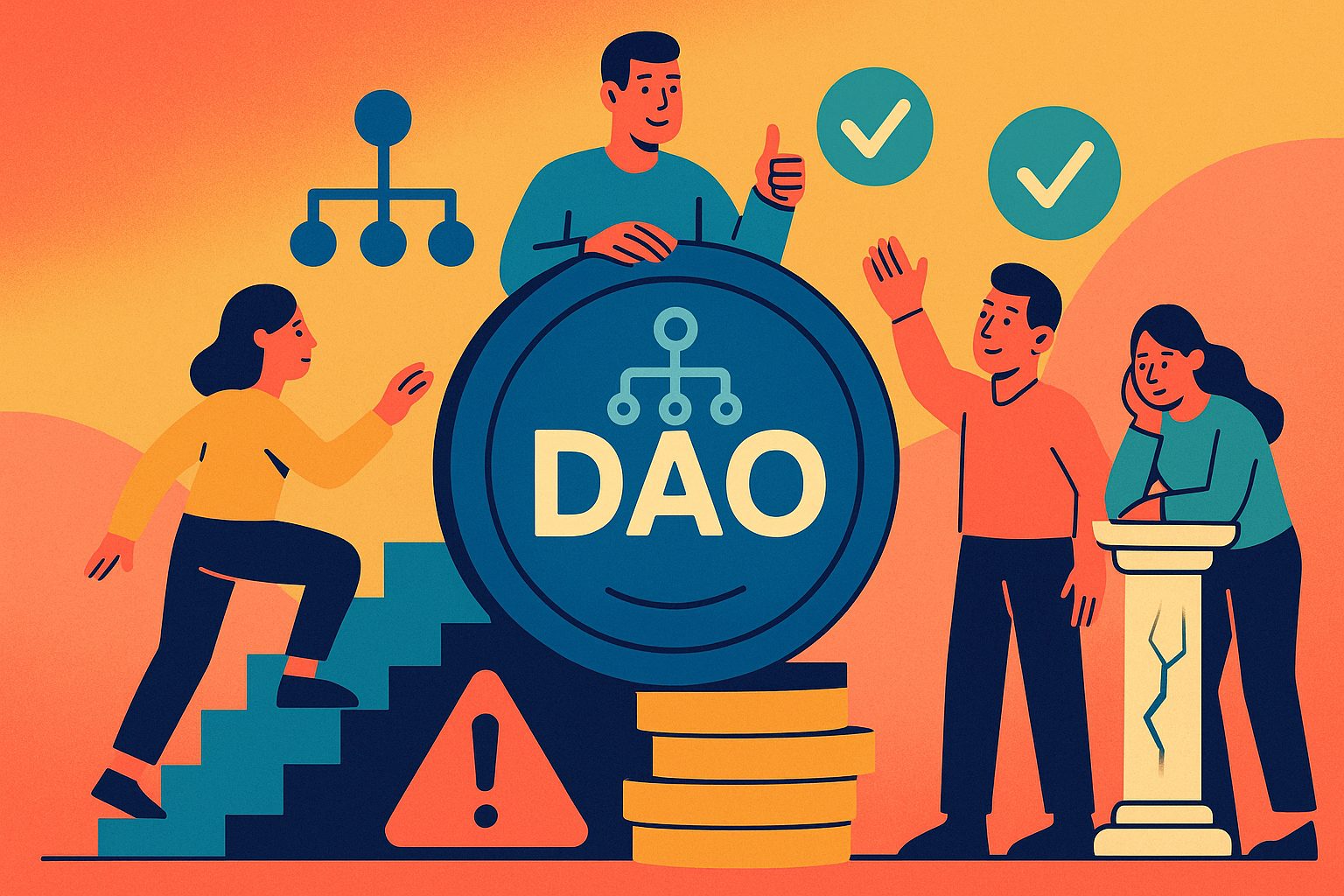Charting the Decentralized Frontier
Decentralized Autonomous Organizations—DAOs for short—have emerged as powerful experiments in collective governance, challenging centuries-old models of hierarchical decision-making. By leveraging blockchain technology, DAOs distribute authority across token holders, enabling transparent, permissionless collaboration on everything from funding public goods to managing protocol upgrades. As these digital collectives proliferate, they promise to democratize decision-making in ways previously unimaginable, reshaping our understanding of organizational power structures and community engagement.
Tracing the DAO Evolution
The concept of DAOs traces back to the early days of Ethereum, when visionary developers sought to automate organizational functions via smart contracts. The 2016 “The DAO” experiment, despite its dramatic hack and subsequent hard fork, demonstrated both the promise and peril of decentralized governance. In its wake, a host of more secure, purpose-built DAOs sprang up—MolochDAO for public goods funding, MakerDAO for decentralized stablecoin governance, and Aragon for customizable on-chain organization. Each iteration learned from past failures, refining smart contract architectures, governance frameworks, and tooling to support more robust, resilient communities.
Unpacking DAO Fundamentals
At their core, DAOs operate on three pillars: smart contracts that define rules and automate actions, governance tokens that confer voting rights, and transparent ledgers that record every proposal, vote, and execution. Token holders submit proposals—ranging from protocol upgrades and budget allocations to community initiatives—then vote according to token-weighted mechanisms. Once a proposal passes, smart contracts execute the specified actions without human intermediaries, ensuring decisions are tamper-proof and verifiable. This on-chain orchestration removes reliance on centralized authorities, empowering stakeholders to co-author the organization’s evolution.
From Code to Community: How DAOs Operate
Beyond the underlying code, successful DAOs cultivate vibrant communities that fuel idea generation, debate, and execution. Discussion forums and chat channels serve as incubators for proposals, where contributors refine ideas collaboratively before submitting formal governance packages. Dedicated roles—such as moderators, auditors, and treasury stewards—help maintain process integrity, while reputation systems reward meaningful contributions. By blending on-chain mechanisms with off-chain social processes, DAOs strike a balance between rigorous protocol execution and human-centered coordination, fostering cultures of inclusivity and shared ownership.
Early Pioneers Paving the Way
Several trailblazing DAOs illustrate the model’s transformative potential. MakerDAO democratized monetary policy through its governance token, enabling community-driven adjustments to risk parameters that maintain the DAI stablecoin’s peg. MolochDAO streamlined public goods funding with a minimalist smart contract design, allocating treasury grants to projects that benefit the broader Ethereum ecosystem. MetaCartel focused on decentralized application incubation, providing early-stage funding and mentorship to innovative dApps. These pioneering efforts not only advanced technical governance models but also cultivated best practices for proposal lifecycle management, security auditing, and community engagement.
Breaking Traditional Power Barriers
Conventional organizations often suffer from concentrated decision-making and opaque processes, where a select few wield disproportionate influence. DAOs disrupt this paradigm by distributing governance power among token holders, enabling anyone—regardless of geography or background—to participate. Fractional token ownership lowers barriers to entry, granting small stakeholders a voice in decisions that once required boardroom access. Moreover, quadratic voting and delegated voting options introduce nuance, balancing major stakeholder influence with measures that prevent whales from dominating outcomes. In doing so, DAOs level the playing field, making collective governance more equitable and representative.
Token-Based Voting in Action
Voting mechanisms lie at the heart of DAO democracy. Token-weighted voting ensures that participants’ influence aligns with their stake in the venture, incentivizing long-term commitment. Some DAOs adopt time-locked tokens or staking requirements to discourage short-term speculation and promote accountability. Quadratic voting introduces a nonlinear cost curve, enabling minority opinions to carry weight without trivializing major stakeholder interests. Off-chain vote signaling tools—like Snapshot—facilitate low-cost discussions and preliminary consensus building, with final ratification executed on-chain. These hybrid approaches optimize for cost, speed, and security, tailoring voting workflows to each community’s needs.
Building Trust through Transparency
Transparency is the DAO ethos in action. Every proposal, vote, and contract execution is recorded on a public ledger, granting real-time visibility into organizational activities. Contributors no longer rely on centralized reports or opaque financial statements; they can audit treasury flows directly, verify milestones, and confirm that funds disburse only upon agreed conditions. Open-source code repositories and community documentation further demystify inner workings, inviting scrutiny and external contributions. This radical transparency not only builds trust among stakeholders but also deters malicious behavior, as every action remains permanently observable.
The Tools Empowering DAO Participation
A rich ecosystem of tools accelerates DAO formation and governance. Frameworks like Aragon, DAOstack, and Colony provide modular smart contracts for token issuance, proposal management, and access control. Front-end interfaces such as Tally, Boardroom, and Snapshot simplify interaction with on-chain governance, offering intuitive dashboards for voting and proposal tracking. Decentralized identity solutions—from ENS names to Soulbound tokens—enhance participant authentication and reputation building. Interoperability protocols like Polkadot’s XCMP and Cosmos’s IBC enable cross-chain DAO collaborations, expanding community reach and resource pools. Together, these innovations lower technical barriers, empowering diverse communities to launch and manage DAOs with minimal friction.
Real-World Impact Across Industries
DAOs extend far beyond DeFi protocols. In the art world, PleasrDAO acquires culturally significant NFTs through collective bidding, democratically curating a decentralized museum. Social impact initiatives deploy DAOs to fund environmental and humanitarian projects with full transparency, as seen on Giveth and KlimaDAO, where contributors track every donation’s deployment in real time. Venture DAOs like MetaCartel Ventures pool member capital to invest in promising startups, sharing returns proportionally. Governance DAOs coordinate open-source software development, funding bug bounties and feature enhancements. This cross-sector adoption underscores DAOs’ versatility in democratizing decision-making across finance, culture, philanthropy, and beyond.
Navigating Challenges and Criticisms
Despite their promise, DAOs face headwinds that threaten scalability and legitimacy. Voter apathy can hamper decision quality when participation rates dip, leading to low quorum or uninformed voting. Token concentration risks recreating centralized power structures, as early contributors and investors amass large stakes. Smart contract vulnerabilities—such as economic exploits or coding bugs—pose existential security risks, exemplified by the 2016 DAO hack. Regulatory uncertainty clouds token distributions and governance models, exposing participants to legal liabilities. Tackling these challenges requires proactive solutions: user education campaigns, reputation-weighted governance, rigorous security audits, and legal frameworks that balance innovation with investor protection.
Legal and Regulatory Frontiers
As DAOs proliferate, regulators worldwide grapple with classifying these borderless entities. Are governance tokens securities subject to disclosure laws? Do DAOs require legal incorporation to limit member liability? Jurisdictions like Switzerland and Wyoming have pioneered DAO-friendly statutes, recognizing DAOs as legal entities with defined governance structures. Hybrid models—where on-chain governance interfaces with off-chain legal wrappers—offer clarity on contractual obligations and liability protection. However, the evolving regulatory landscape demands continuous liaison with legal experts and industry consortia to ensure compliance without stifling innovation. Striking this balance will be critical for DAOs aiming to achieve mainstream adoption and institutional partnerships.
The Road Ahead: Next-Gen DAO Models
The next generation of DAOs will push the envelope of democratic governance. Reputation systems and on-chain identity solutions promise to elevate contributions beyond mere token holdings, weighting votes by demonstrated expertise and community standing. Cross-DAO collaboratives may pool resources for large-scale initiatives—such as decentralized infrastructure projects or global public goods funding—amplifying impact through collective capital. Advances in zero-knowledge proofs and layer-2 scaling will reduce transaction costs and protect voter privacy, enabling more frequent, granular governance cycles. Integrations with IoT devices and real-world sensors will tie governance decisions to external data, automating funding for environmental remediation or supply-chain verification based on verifiable events.
Embracing a New Era of Collective Governance
The rise of DAOs heralds a transformative shift in how we organize, collaborate, and allocate resources. By decentralizing decision-making, DAOs dismantle entrenched power dynamics, empowering individuals to co-create and co-steward projects with unprecedented transparency and efficiency. While challenges around participation, security, and regulation remain, the steady innovation in governance frameworks, tooling, and legal structures paves the way for broader adoption. For participants and observers alike, understanding DAO evolution is more than academic—it’s a call to engage in shaping the future of collective governance. As these digital communities mature, they offer a compelling vision of democratic organization in the digital age, where every voice can resonate and every contribution can catalyze meaningful change.




